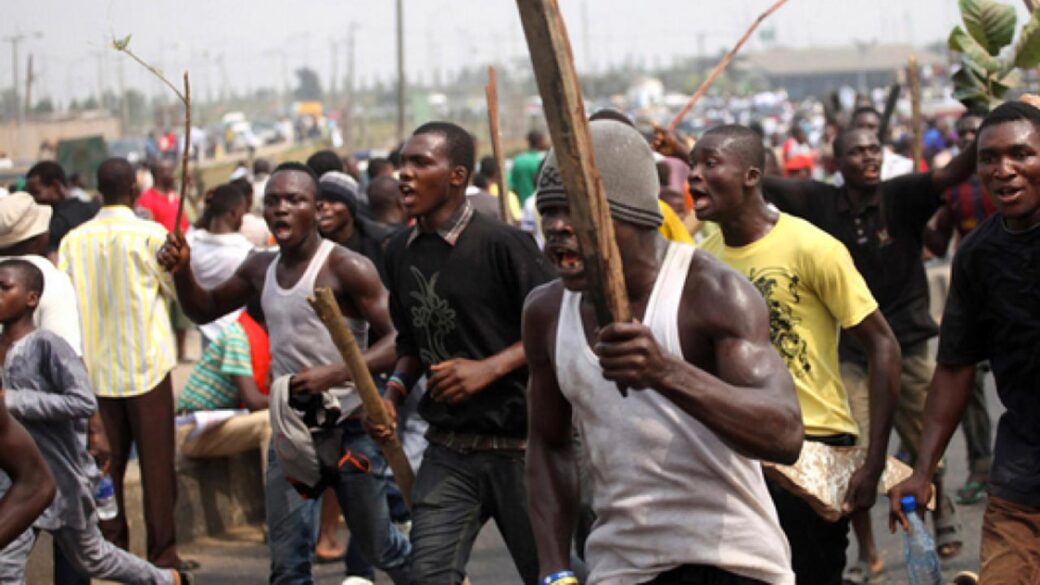
Operators in the haulage industry including members of the Nigerian Association of Road Transport Owners, have said that the unchecked activities of hoodlums on the Apapa-Ijora and Tincan-Mile 2 areas in Lagos State often cause the death of about 40 of their members annually.
According to them, these individuals, commonly referred to as “area boys,” have created a dangerous environment for truck drivers, significantly impacting the trucking business and the nation’s economy adversely.
The Executive Secretary of NARTO, Mr Aloga Ogbogo, said the violent tactics often employed by these hoodlums usually escalate to physical assaults, as drivers are beaten up, trucks vandalised, and valuable cargo sometimes stolen.
“On average, we counted close to about 40 to 45 drivers annually. Some die instantly, while others succumb to their injuries later. The ones that died instantly were close to about 20 to 25. Then, some go to the hospital and subsequently die,” Ogbogo said.
Explaining further, he said when the hoodlums approach the drivers, they get on the trucks and start attacking the drivers, “asking for money and distracting you.
“Sometimes they even go ahead to pull the gasoline supply to the trucks to ensure that the truck comes to a standstill. When that happens, it causes unnecessary hold-ups, because the truck would block the road.”
Ogbogo continued, “They (hoodlums) break the windscreen of the truck, attack the driver; and bring the vehicle to a halt. These activities are negatively impacting the trucking business and the drivers.”
He said these activities result in not only a disruption of logistics and supply chains but also a significant financial burden on truck owners who must repair damaged vehicles and compensate injured drivers.
Ogbogo stated that these numbers reflect only a portion of the true toll, as many incidents go unreported due to the lack of proper documentation and attacks on the drivers.
He added that the psychological impact on the drivers who survive these attacks is profound as they live in constant fear of being assaulted or killed on the job, which takes a toll on their mental health and overall well-being.
Ogbogo said many drivers suffer from anxiety and stress, knowing that each trip could be their last, with the ripple effect extending to their families, who must cope with the loss or incapacitation of their primary breadwinners.
This, he said, affects the larger community and economy, as the loss of skilled labour disrupts productivity and economic stability.
“The economic implications of this ongoing crisis are substantial. The trucking industry plays a vital role in Nigeria’s economy, facilitating the movement of goods and services across the country and beyond. However, the activities of hoodlums in Apapa-Ijora and Tincan-Mile 2 significantly hinder this process” he lamented.
“We use this opportunity to call on law enforcement agencies to do the needful and clear these ‘area boys’ from the port corridor,” Ogbogo stated.
The General Secretary of the Association of Maritime Truck Owners, Mohammed Bala, highlighted the financial impact.
He said, “The activities of these hoodlums who seem to be working for some of these enforcement officers are over-killing. Just last month, precisely on June 1st, in the Mile 2 axis, hoodlums fell a truck and container, leading to the death of the driver. So far, on average this year, two deaths of our drivers have been recorded,”
The General Manager of Operations at NARTO, Stephen Okafor, noted that the extortion by these criminals translates to unbudgeted expenses for truck owners.
He estimates that these nefarious activities contribute to about 10 per cent to 15 per cent of their overhead costs daily.
“If the driver pays, he will indirectly collect the same money from the truck owner. It is affecting our business,” he explained.
He said the cumulative financial loss runs into billions annually, affecting not only the transport sector but also the broader economy.
“The need for a coordinated and sustained response from law enforcement and government authorities is critical. The port corridors are not just local transport routes; they are vital economic arteries that impact Nigeria’s Gross Domestic Product,” he said.



